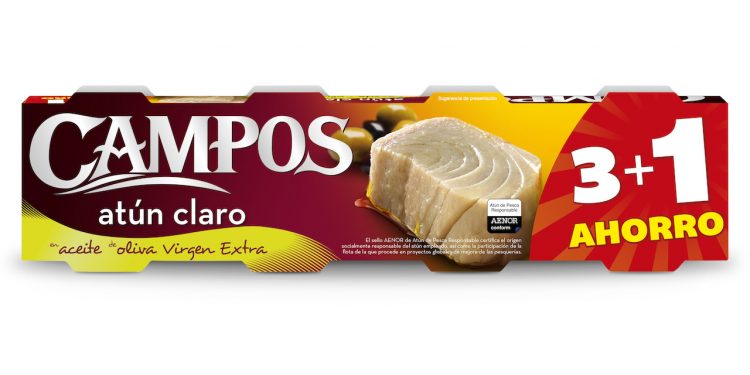Italian and US consumers can now find tuna on their supermarket shelves carrying the AENOR Tuna from Responsible Fishing (or APR Standard) label promoted by Spanish tuna operators’ body OPAGAC, now that the Bolton Food, Salica and Atunlo canning companies have certified their production lines and started marketing APR products in these two countries.
Products are available under the Isabel, Campos and Atunlo brand names. In addition, Spanish company La Piara, which has just been certified, will begin this year to market only Tuna from Responsible Fishing in those of its fish pâtés that contain tuna.
‘The Spanish tuna fleet has consolidated its place as an international market pacesetter in guaranteeing that tropical tuna is fished under conditions that are both environmentally and socially responsible and sustainable. In fact, our fleet now has a total of 65 certified vessels after the recent addition of three ships belonging to Basque shipowner Txopituna in the Eastern Pacific,’ said OPAGAC managing director Julio Morón.
These 65 vessels already account for over 10% of the world’s tropical tuna catch. The fleet is highly international, operating under the flags of eight countries: Spain, Ecuador, Guatemala, the Seychelles, Belize, Curaçao, El Salvador and Panama.
In connection with processing and distribution chain certification, the three canning companies concerned above procure their supplies from 15 companies that specialise in providing tuna from Spain, Portugal, Ecuador, Colombia, and Morocco; their activity is also Tuna from Responsible Fishing-certified.
In 2019 Spanish consumers became the first in the world who could buy cans of tuna bearing the Tuna from Responsible Fishing label. This certification is voluntary, and it is the result of an initiative by the Spanish tuna fleet, represented by the Organisation of Associated Producers of Large Tuna Freezers (OPAGAC).
The label guarantees to distributors and consumers alike that the tuna they market or consume was caught in accordance with stringent environmental, social and labour standards, far above the legal requirements. At the fishing stage in particular, the certificate ensures control of the activity, good practices on board ship for responsible fishing, maritime and health control and compliance with social and occupational safety conditions in accordance with ILO Convention 188.
‘We consumers are increasingly willing to support buying products that we can be sure are sustainable and responsible, but now the last hurdle we’re facing is for big distribution to commit to including these values in its supply chain,’ Julio Morón said.
‘This means that the European Union and the Member States have to set a standard of comprehensive sustainability so that all fleets play by the same rules, and they have to shut the European market’s doors to fishery products caught by the fleets of countries that aren’t committed to upholding that standard.’









